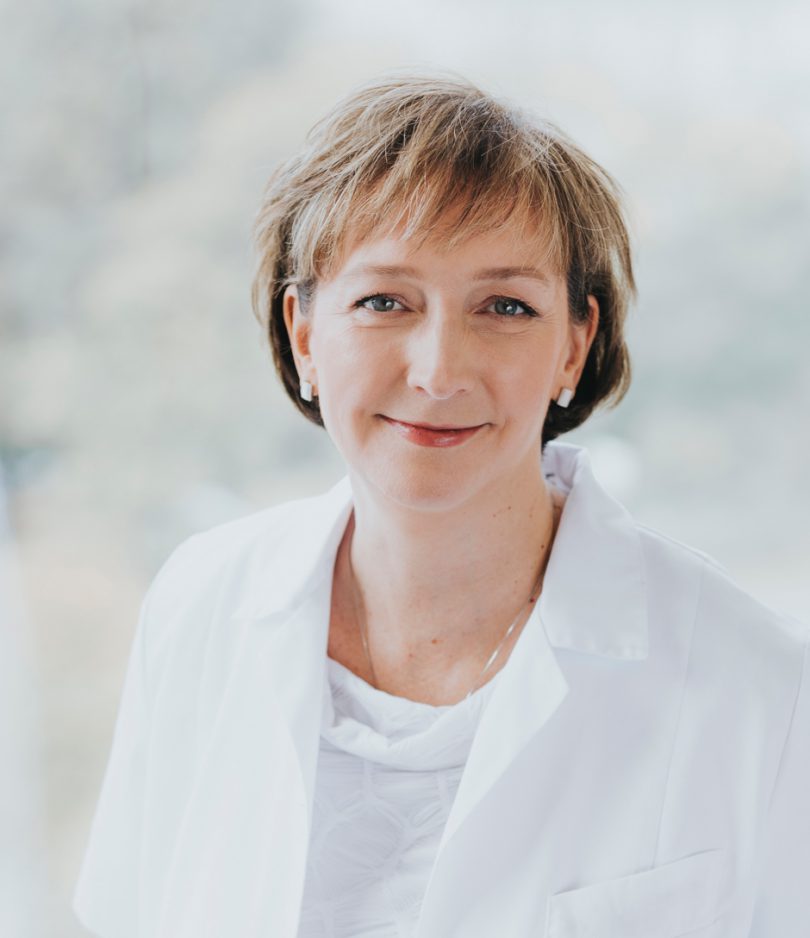Situated on the eastern coast of the Baltic Sea in Northern Europe, Estonia is becoming a next hot spot for foreign patients. Estonia has an excellent healthcare system and lower IVF treatment cost compared to most European countries. Fertility treatments are well regulated and the clinics are regularly inspected to maintain a high standard. Being a member of the European Union means that Estonia adheres to European Union Tissues and Cells Directive. For these reasons, together with the fact that Estonia has outstanding beauty and history, you should make it a place to consider for fertility treatment abroad.
Dr Ailen Aluri, gynaecologist and fertility expert in Next Fertility Nordic Tallinn, Estonia talks about main fertility issues, how to preserve fertility early on and option to freeze your own eggs as an extra reproductive health insurance.

-
Dr Aluri, you’ve been a fertility doctor for over 13 years – has people’s awareness of their fertility changed over the years?
I think people’s awareness of fertility has indeed changed during that time. We have 6 clinics in Estonia, that specialize in fertility treatment. Many people personally know couples who have had or are having difficulties with starting a family. Recently, women are more aware of the possibility of freezing their eggs, so when they’re nearly 40 and ovarian reserve is low they could still have a possibility to have a biological child via IVF with their own frozen eggs.
-
How often do you recommend visiting a gynaecologist? When should you definitely see a doctor?
If there are no complaints, a woman should see a gynaecologist at least every two years, preferrably once a year. You should definitely see a doctor if you have irregular cycles, lower abdominal pain, cycle issues like increased flow etc. It is also worth coming to an appointment when you change sexual partners.
-
What are the main causes of fertility related issues?
Around a third of the causes of infertility involve the woman, another third the man and the last third both of them. Around 10% of the cases can be considered unexplained fertility issues. For women, common causes of fertility issues include ovulation disorders: PCOS or polycystic ovary syndrome, hyperprolactinemia, thyroid dysfunction, as well as endometriosis, problems with the fallopian tubes (i.e. a situation where the fallopian tubes are partially or completely blocked, e.g. due to inflammation or a post-operative process). Male causes include disorders in sperm quality, manifested by low sperm counts, poor motility, or structural defects. Testicular varicose veins (varicocele) or inflammation may occur. Sperm analysis helps to assess male fertility. We recommend fertility check-up.
-
Who is a typical fertility patient? What are the most common problems that your patients have?
I think that women with PCOS, or polycystic ovary syndrome, are the most affected by fertility issues. Their problem is usually irregular menstruation, sometimes the complete absence of menstruation without treatment. Their cycle can be around 40 days or even just a few times a year. Many of these women are slightly overweight, with increased hair growth. Because they do not ovulate spontaneously, these women come to the fertility doctor’s appointment relatively quickly. For women with PCOS who are also slightly overweight, weight loss often helps. This is a difficult task, but it is often enough to achieve a result, and it is certainly important in order to achieve a more successful treatment outcome. Another group of patients are women diagnosed with endometriosis. Often they have undergone surgery once or several times for endometriosis, and have received hormone therapy. After being diagnosed, women with endometriosis should definitely be consulted by a fertility doctor. Endometriosis is known to alter the quality of eggs and worsen the chance of conceiving. Each operation damages the egg reserve and therefore repeated surgery should be avoided; fertility treatment should be started as early as possible if it is desired to have a child. In these cases, fertility treatment may also take more time.
-
How to maintain and take care of your fertility?
A healthy lifestyle and moderate exercise is a must. Keep your weight within the normal range, do not smoke or consume stimulants. Reduce the amount of stress in your life. All these factors play a role in conceiving. If you are planning to become pregnant, you could start taking folic acid and other supportive supplements.
-
Freezing your own eggs – this is a recent topic women are becoming more and more aware of.
Women are starting to think about this possibility, and there are already women who have had their eggs frozen at our clinic. This is not yet done en masse in Estonia, but women are gradually becoming more aware of it and are starting to have this procedure done. When I attended training in Salzburg over a year ago, the lecturers said that there was already a trend in America for parents to give their daughters a college graduation fund, so that they could freeze their eggs. Young women can focus on their careers without worries and give birth later when they have reached a state of financial security. We don’t yet see such a trend in Estonia, but at least we have the opportunity in our clinic to have this procedure done.
-
Do you believe in miracles?
You must have faith. I’ve had a patient who had a child after 9 in vitro fertilization procedures. There are also cases where a woman has conceived naturally after several failed IVF procedures.

IVF treatment in Estonia
• Married, unmarried couples, single women
• Women <51 years can be treated
• Donation locally anonymous
• Clinic can do treatments with non-anonymous donor gametes ordered from other donor banks
• Social egg and sperm freezing is permitted; no limit of the time for gamete storage
• PGT-A/SR/M allowed; sex selection only for medical reasons
• Maximum 3 embryos transferred (mainly single embryo transfer)
• Embryos can be stored for up to 7 years
• Surrogacy not permitted
In Estonia, fertility treatments and the use of donor gametes are regulated by the Estonian “Artificial Insemination and Embryo Protection Act”.







